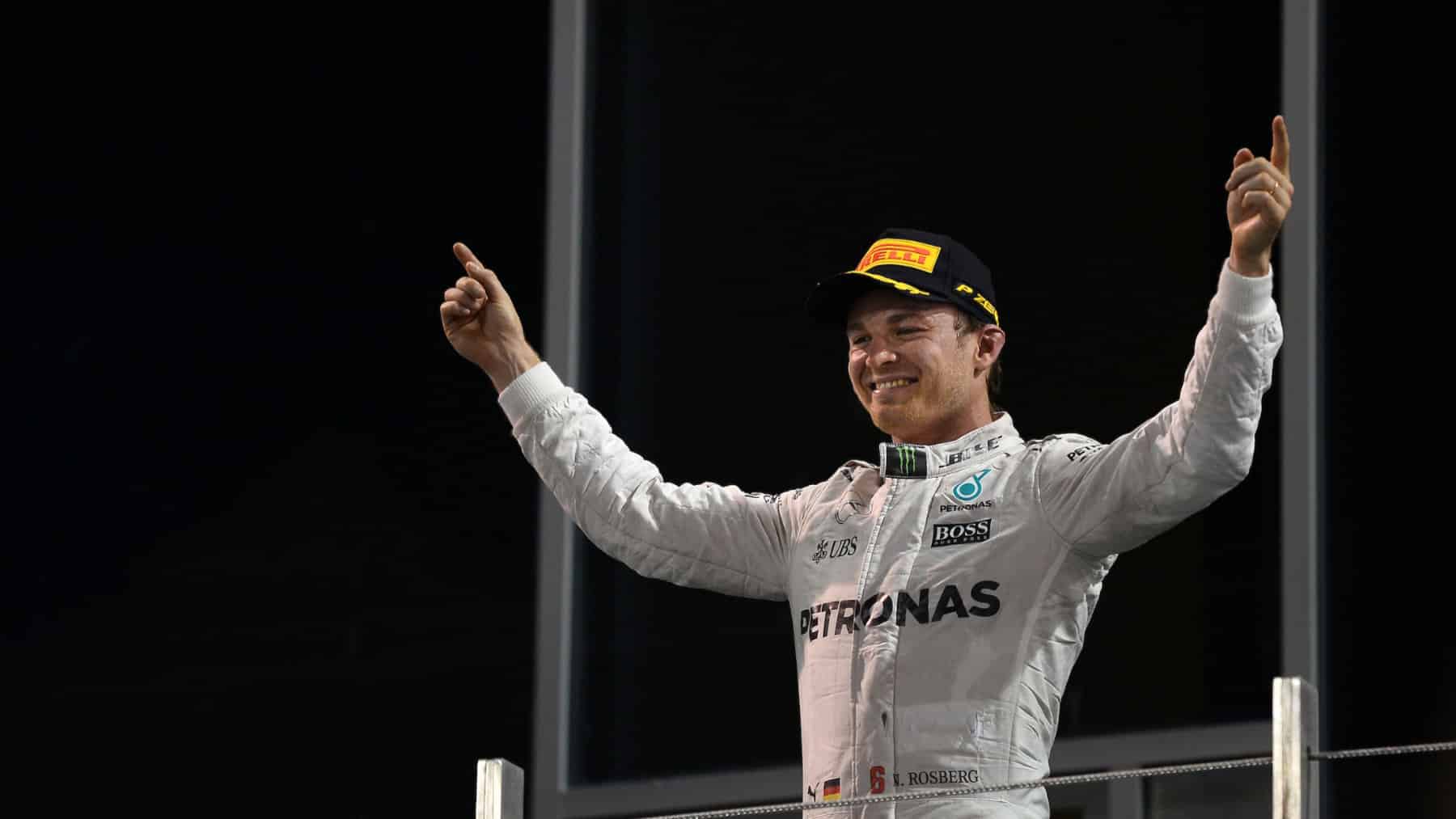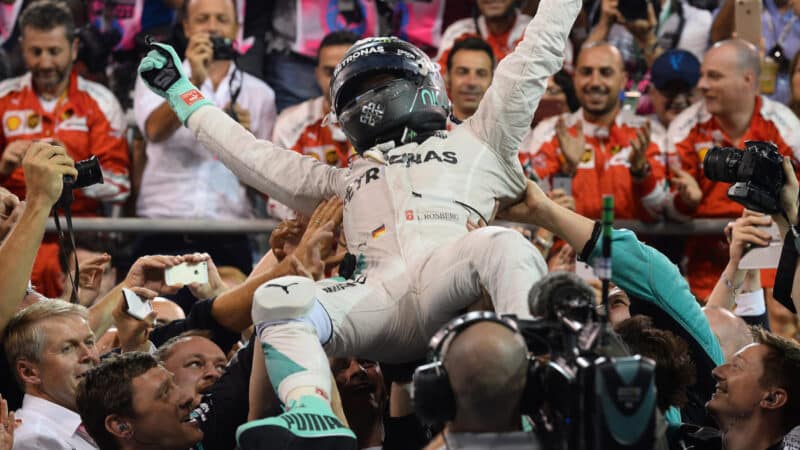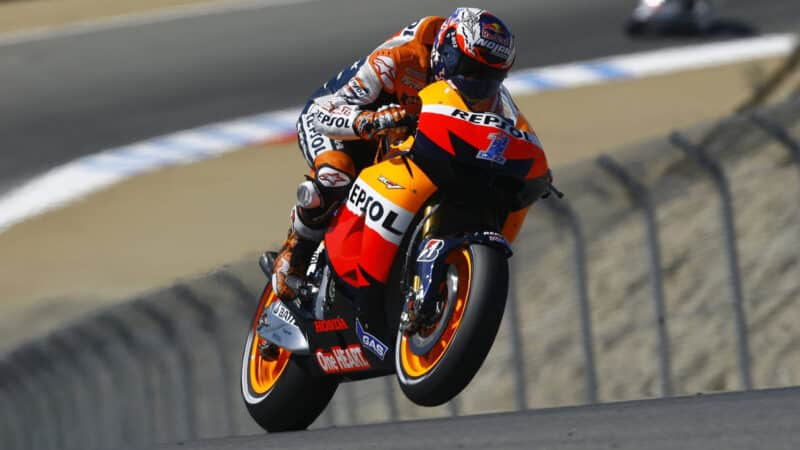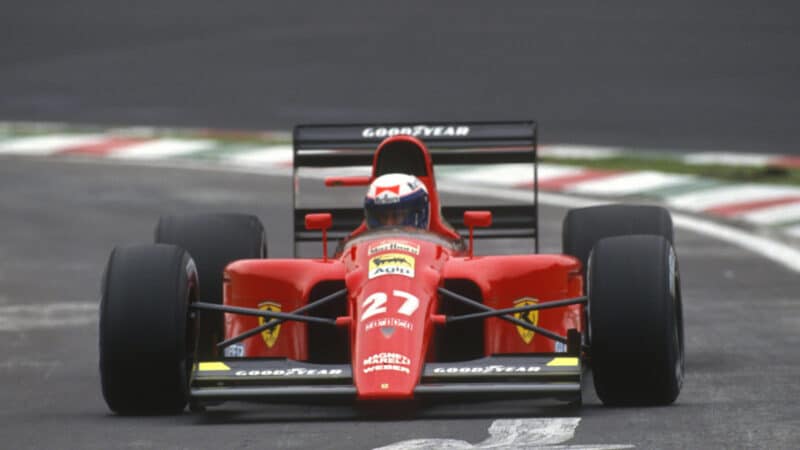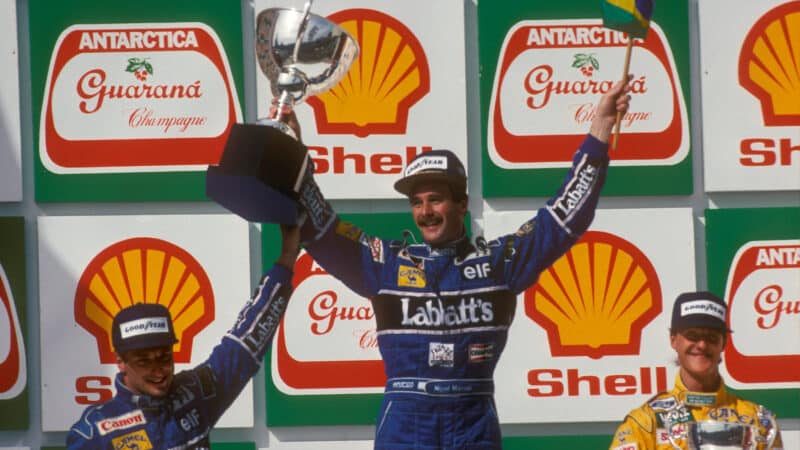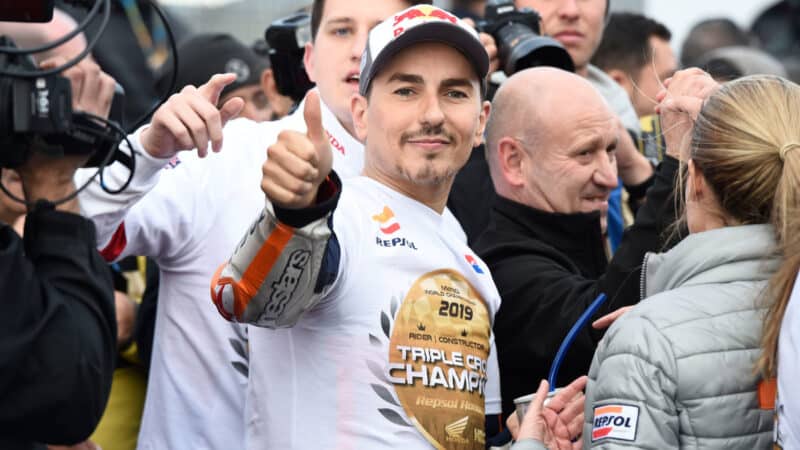The World Rally Championship was rocked on Thursday by the shocking announcement that two-time champion Kalle Rovanperä is leaving the series at just 25 years old.
Rovanperä’s decision to step away from rallying at the pinnacle of his career stunned fans and experts alike, particularly as he is switching to single-seaters with the aim of reaching Formula 1.
The Finn’s move is reminiscent of other shocking retirements across the history of racing.
From Formula 1 stars like Nico Rosberg and Fernando Alonso to MotoGP legends such as Casey Stoner, this piece explores some of the most stunning exits in racing history.
Nico Rosberg
Nico Rosberg’s retirement from Formula 1 in December 2016 remains one of motor sport’s most shocking and talked-about career exits.
Rosberg celebrates his title after the Abu Dhabi Grand Prix
Grand Prix Photo
Just five days after clinching his first and only world championship in a tense showdown at Abu Dhabi, Rosberg announced his immediate retirement on social media.
At 31 years old and after 23 victories from 206 grand prix starts, Rosberg walked away on top after a season defined by the relentless pressure of fighting for the title with his Mercedes team-mate Lewis Hamilton.
Rosberg explained that the idea of retiring began to form after winning in Suzuka, when he realised the title was finally within his grasp.
“From the moment when the destiny of the title was in my own hands, the big pressure started and I began to think about ending my racing career if I became world champion,” Rosberg said.
“On Sunday morning in Abu Dhabi, I knew that it could be my last race and that feeling cleared my head before the start. I wanted to enjoy every part of the experience, knowing it might be the last time… and then the lights went out and I had the most intense 55 laps of my life. I took my decision on Monday evening.”
Rosberg described the 2016 championship fight as the most exhausting of his life.
“I have climbed my mountain, I am on the peak, so this feels right,” he said.
Casey Stoner
Casey Stoner’s sudden retirement from MotoGP at the end of the 2012 season also sent shockwaves through the racing world.
Stoner fell out of love with MotoGP
Red Bull
At just 27, Stoner was in peak form, having won two MotoGP world championships — first with Ducati in 2007 and then with Honda in 2011 – and accumulating 35 race wins — more than any other rider since 2006.
Publicly, Stoner cited a gradual loss of passion for the sport and his growing disenchantment with the direction MotoGP was headed, especially regarding the technical regulations and the politics within the paddock.
He admitted a desire for a purer form of racing led him to step away.
“After a long time thinking, a lot of time talking with my family and my wife, this has been coming for a couple of years now, but at the end of this 2012 season, I will be not racing in the 2013 championship,” Stoner said.
“I will be finishing my career at the end of this season in MotoGP, and go forward in different things in my life.
“This sport has changed a lot and it has changed to the point where I am not enjoying it. I don’t have the passion for it and so at this time it’s better if I retire now.
“There are a lot of things that have disappointed me, and also a lot of things I have loved about this sport, but unfortunately the balance has gone in the wrong direction.”
Stoner’s family also became a priority, motivating his decision to leave while at the top rather than endure another exhausting season.
Though invitations to return persisted, Stoner ultimately remained retired, later acting as a test rider but never competing again.
Alain Prost
Four-time F1 champion Alain Prost had not one but two retirements that stunned the sport.
Prost was fired from Ferrari after comparing his car with a truck
Grand Prix Photo
His first retirement came in 1991, after a very difficult season with Ferrari.
Having left McLaren after fighting for the title the previous year, Prost found himself frustrated by Ferrari’s lack of pace and, infamously, publicly criticised the team and its car’s performance.
His remarks led to his immediate sacking before the final race in Australia, prompting his abrupt — though initially temporary — departure from F1.
Prost spent 1992 as a TV commentator before he returned in 1993 with Williams-Renault and dominated, securing his fourth world championship with seven wins.
However, with the prospect of long-time rival Ayrton Senna joining Williams for 1994, Prost chose to retire definitively at the end of 1993.
Internal pressures at Williams, a desire to leave at his peak, and unresolved tensions with Senna influenced the timing.
He finished on the podium in his final F1 race.
In 1997, Prost bought the Ligier team from Flavio Briatore and renamed it Prost Grand Prix, becoming an F1 team boss.
Nigel Mansell
Like Prost, Nigel Mansell‘s Formula 1 career was marked by two retirements, although it could have been three.
Mansell’s first F1 exit came right after winning his title
Grand Prix Photo
His first came at the end of the 1990 season while racing for Ferrari. After a turbulent season marked by clashes with then team-mate Prost and frustrations over car performance and team politics, Mansell announced his retirement publicly at Silverstone.
This decision was short-lived, as he returned to Formula 1 in 1991 with Williams.
His second retirement happened after his championship-winning 1992 season. Despite wanting to continue a Williams, a contract dispute with the team and the prospect of Prost joining in 1993 soured relations.
Mansell demanded number one status and a lucrative contract, but the team’s indecision and its deal with Prost led Mansell to announce his retirement again.
Rather than settle for a diminished status, he chose to leave Formula 1 at his peak and moved to American open-wheel racing, where he won the IndyCar World Series in 1993.
Mansell made a brief comeback to F1 in 1994 with Williams as a replacement for the late Ayrton Senna, and in 1995 he joined McLaren, where he lasted just two races before retiring from F1 for good.
Jorge Lorenzo
Jorge Lorenzo’s retirement from MotoGP in 2019 wasn’t a completely unexpected decision, but still came as a big surprise.
Lorenzo admitted he was afraid after so many crashes
Red Bull
The three-time MotoGP champion struggled in his final season riding for Repsol Honda, and his decision to retire was heavily influenced by severe injuries, including fractured vertebrae sustained in crashes during the season.
Those left him riding in constant pain and undermined his confidence on the bike.
Lorenzo revealed that the crashes at Barcelona and Assen were pivotal moments, triggering a fear that he had never experienced before – a fear of serious injury or disability.

